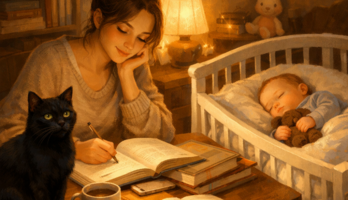Н.Э. Шарабарина, Л.В. Кулик - English for Junior Students of the Humanities - Unit 2 (1110503), страница 5
Текст из файла (страница 5)
- еще18a) Supply a form of other in the following^E.g. I got three letters. One was from my father. Another one was from my sister. Theother letter was from my girlfriend.1. Look at your hand. There is a total of five fingers. One is your thumb. ________isyour index finger. _______ one is your middle finger. _______ finger is your ringfinger.
And ________ finger (the last of the five ) is your little finger.2. Look at your hands. One is your right hand. ________ is your left.3.1 invited five people to my party. Out of those five people, only John and Marycan come. ________ people can't come.4. I invited five people to my party. Out of those five people, only John and Mary cancome .can't come.5. There are various means of transportation. The airplane is one of the means oftransportation. The train is ___________ .6. There are various means of transportation.
The airplane is one. ________ are the train,the automobile, and the horse.7. There are two women standing on the corner. One is Helen Jansen and _______ isPat Hendricks.8. Alice reads The New York Times every day. She doesn't read any _______newspapers.9. Some people prefer classical music, but _______ prefer rock music.10. Mr. and Mrs. Jay are a happily married couple. They love _________ . They support11. He will graduate in ________ two years.12. I'm almost finished. I just need _________ five minutes.13.
We will have to drive ___________ ten kilometers.14. Could you lend me ____________ five hundred roubles?b) Translate into English.1. Он говорит на двух языках : один - немецкий, другой - голландский.2. А она говорит на трех языках: один - английский, другой - французский, атретий - итальянский.3. Я потерял свой учебник, мне пришлось купить другой.4. У меня две книги на эту тему: одна - на английском языке, другая - на русском.5. Некоторые любят громкую музыку, другие - нет.6. Некоторые телевизионные программы великолепны, другие - ерунда.7. Только два студента не справились с тестом, все остальные сдали его.196-60848. Они любят друг друга без памяти.9. Есть три вещи, которые я особенно люблю: одна - это почитать хорошую книгу,другая - провести время со своими друзьями, и, наконец, - пройти утром поберегу моря.10.
Я еще хочу есть. С удовольствием заказал бы еще одну порцию салата.11. Я бы хотел посетить три места, когда буду в Италии: одно - Ватикан, другое Флоренция, и последнее - площадь Святого Марка.12. Какие еще упражнения второго урока вы сделали?EXERCISE 12WORD FORMATION.Threat - threaten - threatened - threateningShort - shorten - shortened - shorteninga) Fill in the blanks according to the model.HeightThreatFrightShortBroadLessWideLooseb) Translate the following sentences into English.Путешествия расширяют наш кругозор.Прекрасное музыкальное сопровождение усиливало впечатление от спектакля.Такой подход угрожает существованию нашего союза.Неужели это известие напугало вас ?Его всегда пугала мысль, что придется уехать из этого города.Вам нужно сократить это предложение.Мы можем расширить значение этого термина.Только такие меры могут уменьшить воздействие кризиса и ослабитьсоциальную напряженность.9. Они предлагают расширить число спецкурсов.10.
Это явление приобретает угрожающие размеры ( scale ).1.2.3.4.5.6.7.8.EXERCISE 13 Translate into Russian with the help of a dictionary (in writing).It is evident that the story of all languages is full of surprises. The year the Anglo-Saxonsfirst crossed the sea to the former Roman province of Britannia, in AD 450, the odds againstEnglish becoming a world language were about a million to one. It was then an obscure subbranch of the Germanic family of languages and not even native to the British Isles. Alanguage that was born of invasion later itself became an invader on a global scale.Supple in grammar, maddeningly inconsistent in spelling and pronunciation, English hasits strengths and weaknesses.
English as a world language is sustained by another elusivequality - its own peculiar genius. The arts of speech and literature have been perhaps thespecial contribution of the English people to European culture, or at least the one for which20they are most respected! This, needless to say, may have something to do with the history ofthe language.
After the Norman invasion, English was neglected by the Latin-writing andFrench-speaking authorities; from the earliest times it was naturally the language of protestand dissent, the language of the many rather than the few. One cannot deny that, its geniuswas, and still is, essentially democratic. It has given expression to the voice of freedom fromWat Tyler, to Tom Paine, to Thomas Jefferson, to Edmund Burke, to the Chartists, toAbraham Lincoln, to the Suffragettes, to Winston Churchill, to Martin Luther King. It iswell equipped to be a world language, to give voice to the aspirations of the Third World asmuch as the intercommunication of the First World.TEXT ANALYSISEXERCISE 1 Underline the topic sentence of each paragraph and identify thecontrolling idea of each sentence.Note: the topic sentence may occupy the place either at the top or at the bottom of theparagraph.
Sometimes both - in this case we speak about the frame structure ( seeparagraph 12).EXERCISE 2 Trace how the controlling idea is developed into a paragraph.EXERCISE 3 Analyse how the repetition of words, their substitutes, derivatives andsynonyms (in paragraphs 1, 4 9,10) unite the paragraph.EXERCISE 4 Examine and explain the use of articles in paragraph 2.EXERCISE 5 Explain how each paragraph is connected with the previous one(see Unit I).EXERCISE 6 Identify parallel structures in paragraph 6 and 7. What is the effect ?EXERCISE 7Analyse the use of pronoun " they " in paragraph 8. How can youexplain that ?EXERCISE 8Write out all the connectives from the text.EXERCISE 9 Underline the transitional expressions in the following paragraphs anindicate the relationship that each expression shows.Books are as necessary to the student of literature as saw and hammer are to the carpenter;anmjust as a carpenter prefers to work and, jndeed) does his best work with his own tools/soyyou will find thatyott will do your best work with your own tools, your books.Some books, of course/ure too expensive foi; most of us to buy for ourselves and if we wantto consult them/WeilSve to go to a library^ut,money spent on books wisely chosen is moneywell spent and yields a lasting return .(fop just as every hammer has its own feel, and thecarpenter's favorite hammer has the right feel for him, ^nd just as you know the feel of yourown pen QT typewriter and experience some sense of strangeness or discomfort when you useanother(so)you will come to know the feel of your own books and work best with them.fFrom E.R.
Seary and G.M. Story. The Study of English, St. Martin's Press.,)21TEXT CONTENTEXERCISE 1Answer the following questions.1. What are the stages of adjustment?2. What happens to the traveler at each stage of adjustment?3. When people are badly frightened or badly injured they go into shock. They are cold. Theylose their ability to feel. Often they are not able to think clearly. Which stage of adjustmentis called culture shock ? Why do you think the author chooses the word shock to name thisstage of adjustment?4. Why do you think returning home is listed as one of the stages of adjustment?Why would a person have to adjust to living again in his or her own country?5.
Have you ever gone through any of these stages? If so, which ones ? How were yourreactions at each stage similar to or different from those described in the text?EXERCISE 2 Correct the following statements if you find them wrong..Begin your answers with such phrases as:Yes, that's quite true;We cannot deny this fact;That is absolutely right;I don't think that's quite right;I'm afraid that's (absolutely) wrong;That's not quite true;Quite on the contrary;As far as I remember...1. Children pass through the adjustment cycle with greater difficulty because they areless adaptable than adults.2. Travelers begin adjusting to new culture as soon as they arrive in the country.3.
In a new country travelers immediately join in the life of the country.4. In the third stage difficulties arise, people start making mistakes. At the same timethey begin participating more and more.5. People cannot leave behind the assumption, behaviors and beliefs which were part ofthem in their native land.6. In the fourth stage travelers feel completely at ease with the new culture.7. When people have adapted to their new country they are more excited than they werein stage two.8. When travelers return to their native lands their friends and family are very muchinterested in everything that happened to them during their stay abroad.9. There are people who do not experience any feelings while encounting with newculture.22EXERCISE 3 Comment on the following statements using the necessaryword-combinations.a) Specialists in intercultural studies say that it is not easy to get used to life in newculture.Жить за рубежом короткое время или остаться навсегда; испытывать чувства;культурный шок; проходить (пройти) несколько этапов; приспособиться к (новизне)новой культуре; зависеть от продолжительности визита; быть болееприспосабливающимися.b) The adjustment cycle consists of several stages.Покидать дом; приспосабливаться к изменениям; формировать идеи ипредставления; находиться в приподнятом настроении; быть в курсе всего; непринимать активного участия; включаться в жизнь новой страны; более не являтьсянаблюдателями; возникают сложности; чувствовать себя отчужденным; статьраздраженным; уйти в себя; зависеть от индивидуальных качеств; участвовать сменьшими усилиями; адаптироваться к новой стране.c) None return to their homes as quite the same people who left.Последний этап происходит; обнаружить что-либо; иметь более гибкие суждения;узнавать новые и лучшие способы существования и мышления; и что еще хуже; к ихудивлению; казаться ограниченными; мало интересоваться чем-либо; чувствоватьсебя немного иностранцем , когда возвращаешься на родину.LISTENINGThe Story of EnglishVPARTI.














